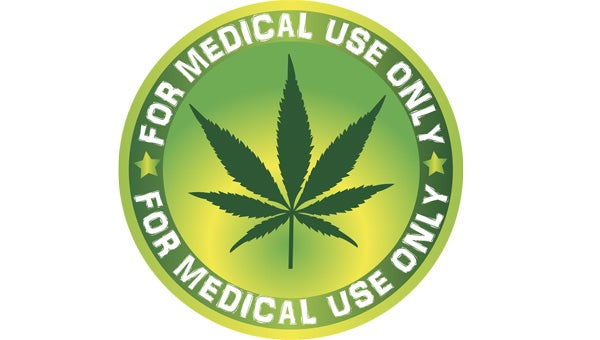Is a medical marijuana deal near? Natchez legislators say ‘devil is in the details’
Published 6:49 pm Thursday, September 23, 2021
|
Getting your Trinity Audio player ready...
|
NATCHEZ — Mississippi lawmakers have reached an agreement on medical marijuana legislation and will soon ask Gov. Tate Reeves to call a special session of the Legislature to act on it.
House Speaker Philip Gunn on Thursday in a radio interview said he thinks the state House and Senate leadership agree on a draft of medical marijuana legislation and the he thinks enough votes exist to pass it in the both chambers, reports a story in Mississippi Today.
Gunn said he and Lt. Gov. Delbert Hosemann plan to ask Reeves to call a special session, and Reeves could do that as soon as today, according to Mississippi Today.
Rep. Sam C. Mims V., who represents District 97 including Natchez and Adams County in the state House, agreed the measure seems to have agreement, but that a number of details remain to be settled.
“I do believe the governor has been clear that he wants to have agreement between the House and the Senate and he wants to look at the legislation and have some input as well,” Mims said. “We have had lots and lots of meetings over the last several weeks and done lots of work on this issue. The last thing we want to do is go to the Capitol and sit there for day after day.”
He said the state legislature has a responsibility to Mississippi citizens to act on the medical marijuana issue.
“I think the people spoke loud and clear on this issue,” Mims said. “Reasonable people have different opinions on these issues, but the people spoke through their vote in November 2020 and the legislature has the responsibility to act on this and craft the best, more responsible piece of legislation that we can make.”
State Sen. Melanie Sojourner, R-Natchez, urged caution as relates to any agreement.
“Seventy-four percent of Mississippians have already decided on the issue of medical marijuana with their overwhelming support of Initiative 65.Had the legislature not been guilty of ignoring the issue for years, the hard work performed by pro-65 forces would have been unnecessary. The legislature should recognize them for their efforts, not find new ways to sabotage them,” she said.
“As to the reported agreement reached by the House and Senate, there is still much work to do. The only agreement reached so far is between the respective leadership of the two chambers. When the bill comes to the floor for a vote, it will be subject to debate and amendments. Remember, the devil is in the details. Whatever we ultimately pass, I hope my colleagues will insist on a bill founded on liberty and free-market traditions. For instance, it would not be wise to support a program that institutes licensing caps, requires a minimum net worth to operate in the industry, or is loaded down with heavy taxes or other burdensome regulations.
Sojourner said lawmakers have a responsibility to enact the will of the people, no matter the challenges of the issue. “Medical marijuana is complex. But, it is clear Mississippians believe they should have access to such treatments. Our job is to respect the wishes of the people and to make sure they don’t suffer in the process.”
State Rep. Lee Yancey, R-Brandon, is the lead negotiator for the House on the measure. State Sen. Kevin Blackwell, R-Southhaven, has taken the lead for the Senate, reported Mississippi Today.
Mississippi Today said Yancey shared with it some of the details of the draft legislation, which include at this point:
- Cities and counties could opt out of participation within 90 days of passage of the legislation, which would allow cultivation and dispensing of medical marijuana within their jurisdiction. However, voters could gather 1,500 signatures, or 20 percent of voters, whichever is less, and force a referendum on the issue.
- Smoking marijuana would be allowed, as well as ingesting it.
- Medical marijuana would be subject to sales taxes and a $15 an ounce excise tax.
- The growing of medical marijuana would be limited to indoor growing facilities. No outdoor growing or growing at homes will be allowed.
- The State Department of Health would oversee the medical marijuana program. The state’s taxing and agriculture agencies would share some regulatory responsibilities.
- Preferences would be given to in-state companies for cultivation.
- The potency of the THC — the active ingredient in marijuana — would be limited to 30 percent on the flower and 60 percent on concentrates and infused products. Any product above 30 percent would require a warning label.







